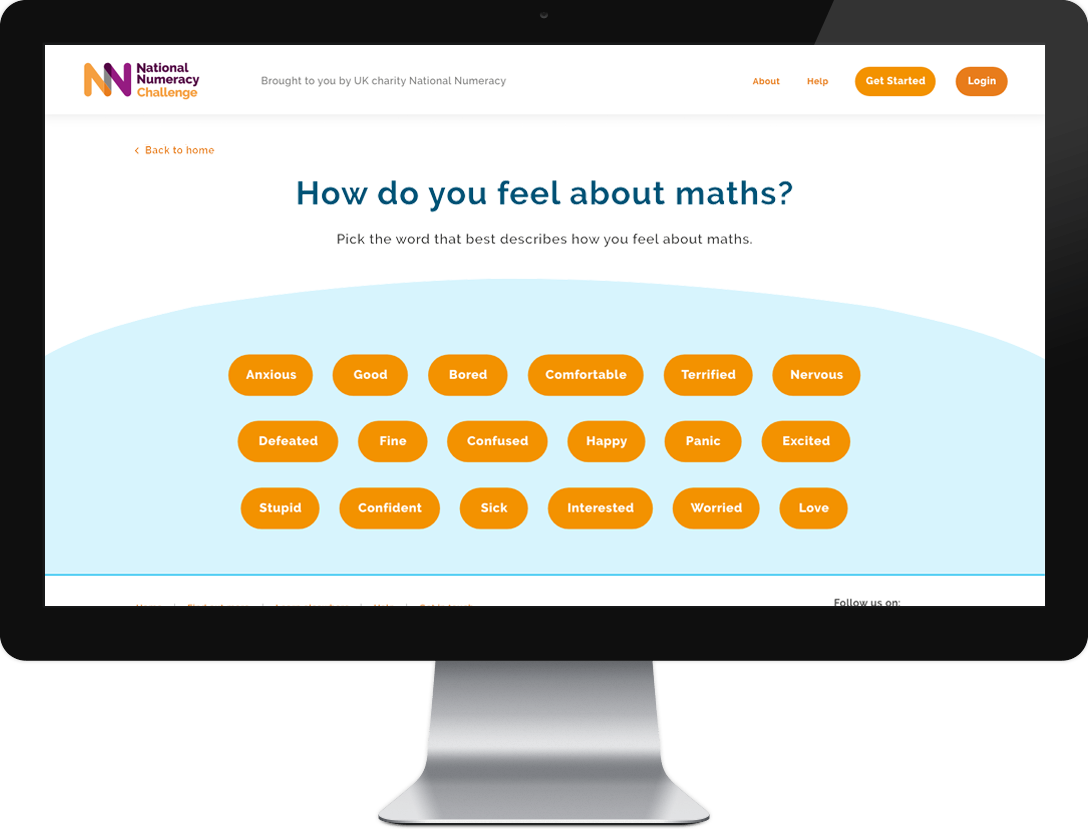• 23% of parents/carers say that having to help with their child’s maths homework makes them feel anxious
• 20% parents/carers say maths homework has caused arguments at home between them and their child
• 34% of women have told their child that they themselves are bad at maths compared to 22% of men.
• 17% of women say that having to help with their child’s homework has made them feel like crying.
Parents anxious about helping with maths homework
New research from the independent charity National Numeracy reveals that almost a quarter of parents and carers in the UK (23%) say that helping with their child’s maths homework makes them anxious.
And 1 in 5 parents/carers (20%) admit that maths homework has caused arguments with their children at home.
The anxiety among parents is more pronounced in women, with over a quarter of women (26%) saying helping with maths homework makes them anxious compared to a fifth of men (20%).
The gender difference is also stark when it comes to what we say to our children about maths. Over a third (34%) of women have told their child they are bad at maths, compared to just over one in five men (22%).
Meanwhile, a further 17% of women say their child’s maths homework has made them feel like crying.
Women more worried about helping with maths homework
Despite gender bearing no relation to maths ability, there is an alarming gender gap when it comes to confidence with maths. Girls often outperform their male counterparts in maths at GCSE level. Yet fewer girls pursue STEM subjects at A-Level, and women consistently report that they are less number confident than men. National Numeracy’s Leadership Council has set up a Gender Taskforce to look in the problem.
People with lower number confidence are more than twice as likely as someone with higher number confidence to feel anxious about their child's maths homework. They are also twice as likely to have been made to feel like crying and 60% more likely to have had an argument with their child caused by maths homework, according to the YouGov survey.
Attitudes to maths can be handed down to children... but attitudes can change
Sam Sims, Chief Executive of National Numeracy, said: “It is heart-breaking to see such a high percentage of parents and carers feeling anxious and upset about trying to help their children with maths homework.
“Low adult numeracy in the UK is a crisis. As our research reveals, it can have life-long consequences for individuals and families.
“Attitudes towards maths tend to be handed down from parents and carers to their children. While feeling anxious about maths is of course understandable, it is of great concern that parents believe they are ‘bad’ at maths and can inadvertently pass that on to their children.
“Crucially, this is changeable. Everyone can improve their numeracy and developing a positive attitude towards the value of maths in everyday life can not only have a profoundly positive impact of our lives, but also the lives of the children in our care.
‘National Numeracy is working hard with parents/carers and teachers across the UK to break this intergenerational cycle by boosting adult numeracy and fostering the confidence needed to use numbers in daily life and see the value of maths in their lives.”
Tips from Dr Linda about building number confidence
In response to the research, National Numeracy has recruited world-renowned psychologist Dr Linda Papadopoulos as their latest Ambassador.
Dr Linda has recorded several tips for overcoming maths anxiety and building confidence, which are available for free as part of the charity’s National Numeracy Day campaign on Wednesday 22 May.
Dr Linda Papadopoulos, world-renowned psychologist, and National Numeracy Ambassador, said: “Maths homework can often cause real, raw emotion. As a psychologist and National Numeracy Ambassador, a big part of what I do is to help people feel with their thoughts and emotions.
“With maths, one of the themes that often comes up is a sense of inadequacy that many people feel, that then seeps into other areas of life. So ‘I’m not good at maths’ becomes ‘I’m just not that bright’. Because of that, it is critical that if you feel inadequate around maths, that you learn how to challenge this. Not everybody learns in the same way and there is a way for you to get better at numeracy.”
The charity urges anybody who may feel overwhelmed by numbers to visit its website for help and support and to hear more of Dr Linda’s advice. The online National Numeracy Challenge improves people’s confidence with maths and is a great way to build confidence at a pace and level that adapts to every individual user.
For media queries, please contact:
Cass Lawrence, Head of Communications, National Numeracy
Notes to Editors:
Research Methodology: All figures, unless otherwise stated, are from YouGov Plc. Total sample size was 2238 adults. Fieldwork was undertaken between 9th - 10th May 2024. The survey was carried out online. The figures have been weighted and are representative of all UK adults (aged 18+).
About National Numeracy: National Numeracy is a charity dedicated to helping people feel confident with numbers and using everyday maths. Our mission is to empower children and adults in the UK to get on with numbers so they can fulfil their potential at work, home and school. Our work improves how people understand and work with numbers in everyday life, sparking better opportunities and brighter futures. National Numeracy is a registered company (company no: 7886294) and charity (charity no: 1145669).
About National Numeracy Day: National Numeracy Day on 22 May 2024 is the UK’s only day dedicated to everyday maths. It aims is to inspire everyone to have the confidence and skills to work with, and understand numbers, so they can get on in life. One simple step is to try the National Numeracy Challenge. The campaign is run by the UK charity National Numeracy with the campaign’s founding supporter KPMG and supported by an ever-growing list of organisations who believe in improving the nation’s numeracy.
Photo: Annushka Ahuja, Pexels






